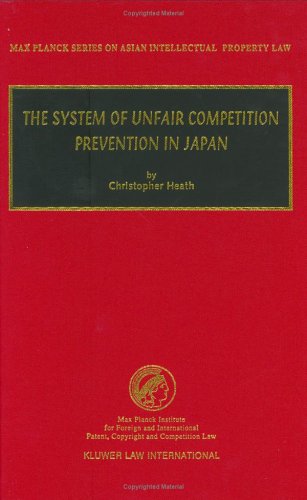
This is an in-depth treatment in English of Japanese law and practice governing unfair competition. The author analyzes the interaction of the relevant laws - and the case law derived from each - to present a systematic description of how business reputation, trade secrets, well-known marks, and other aspects of business achievement and investment are protected against undue exploitation in Japan.
Prohibited acts of unfair competition covered include: misappropriation by confusion or passing-off; misappropriation through breach of trust or fiduciary duty; slavish imitation of distinct product features; trade mark piracy; tortious acts of denigration, libel, and slander; direct interference by, e.g., boycott or bribery; undue exercise of intellectual property rights; and misleading indications on goods and services (e.g., of geographical origin).
Several problematic areas - in particular, the obstacles to effective enforcement, and the lack of adequate protection for consumers against acts of unfair competition - are given particular emphasis.
The book concludes with cogent proposals on how the Japanese system could be improved and developed, referring to the model provisions of the World Intellectual Property Organization and offering a new and original draft of the Unfair Competition Act. Any business person or investor interested in the Japanese market should benefit enormously from this practical and insightful volume.